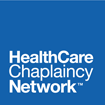Care for All: Cultural Competence, Inclusion, and Vulnerable Populations
Course Author: Sue Wintz, M.Div., BCC
This course, Care for All: Cultural Competence, Inclusion, and Vulnerable Populations, focuses on the importance of understanding the scope and importance of culture and inclusion is addressed including its influences upon patients and families, the interdisciplinary health care team, and the health care or spiritual care provider him or herself. Emphasis will be on not only identifying the cultural and social issues that may arise, but the skills needed to demonstrate the ability to assist in incorporating those beliefs and values into the patient’s plan of care. In addition, this course will define and address “marginalized populations” – those without the same level of access to health care and other services that others depend on – including those who are illiterate or with low health literacy, people who are intellectually disabled, the homeless, and those who are incarcerated.
By the end of this course the learner will be able to:
- Define cultural competency and cultural humility in health care.
- Engage in self-awareness of and the ability to articulate one’s own cultural values, beliefs, assumptions, and biases and is able to set those aside in order to assess for, document, and provide interventions to patients and families.
- Gain basic knowledge of different religious traditions and common beliefs and practices.
- Gain basic knowledge of different cultural groups and common beliefs and practices.
- Identify methods to employ in order to obtain knowledge on unfamiliar cultures, religious/spiritual beliefs, or existential norms.
- Define inclusion in health care.
- Understand ways to assess, document, and include in a care plan appropriate spiritual/religious interventions for cross-cultural situations, including them in documentation.
- Describe the importance of identifying the unique spiritual/cultural/religious beliefs within vulnerable patient populations (including non-resident aliens, LGBTQ, homeless, incarcerated, low health literacy/illiterate, mentally challenged, severely disabled).
Course Outline
- Cultural Competence in Health Care
- Cultural Humility
- Religious and Cultural Traditions: Common Beliefs and Practices: Methods to Obtain Knowledge
- Inclusion in Health Care and Vulnerable Populations
- Cultural and Inclusion Issues in Practice
- Summary
- References
Number of Continuing Education Hours: 25
Credit towards Board Certification Requirements: 1
Aligns with the following Quality Indicators in What is Quality Spiritual Care in Health Care and How Do You Measure It? (HCCN. 2016).
- Structural Indicator 1.C. Information is provided about the availability of spiritual care services.
- Structural Indicator 1.B. Dedicated sacred space is available for meditation, reflection and ritual.
- Process Indicator 2.B. All clients are offered the opportunity to have a discussion of religious/spiritual concerns.
- Process Indicator 2.C. An assessment of religious, spiritual, and existential concerns using a structured instrument is developed and documented, and the information obtained from the assessment is integrated into the overall care plan.
- Process Indicator 2.E. Families are offered the opportunity to discuss spiritual issues during goals of care conferences.
- Process Indicator 2.G. End of life and Bereavement Care is provided as appropriate to the population served.

